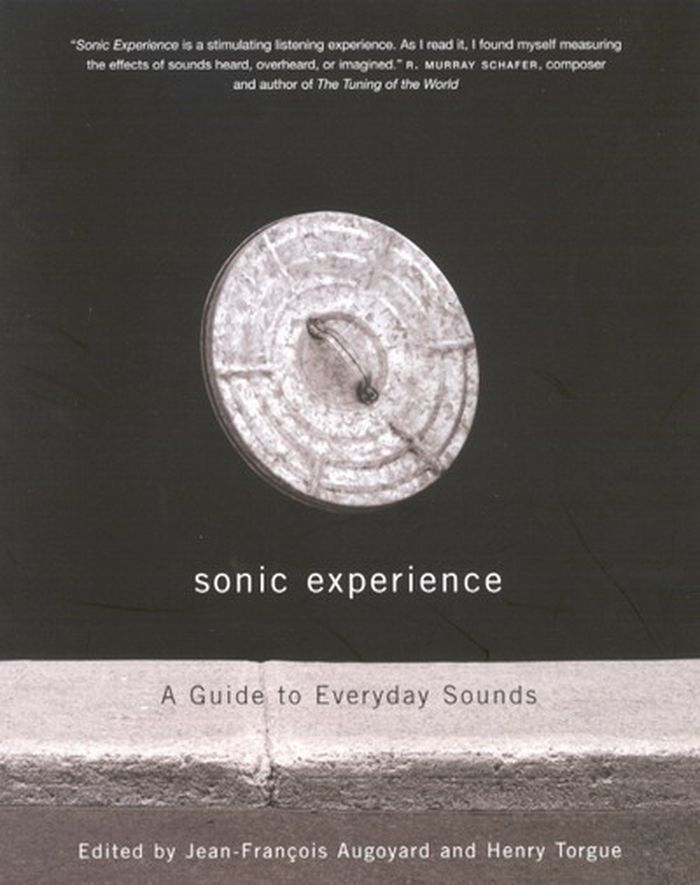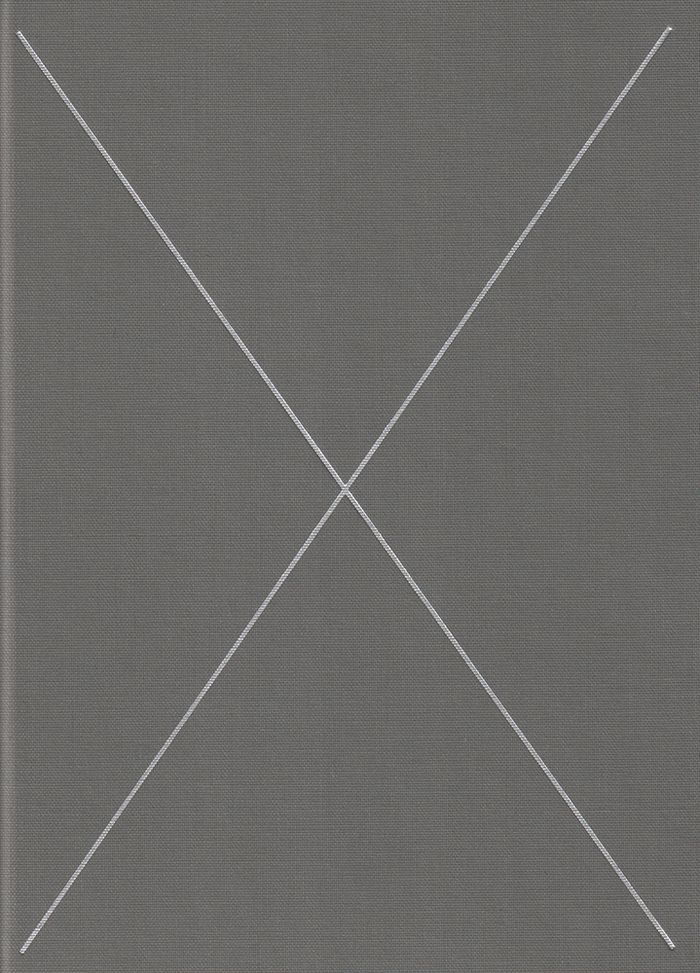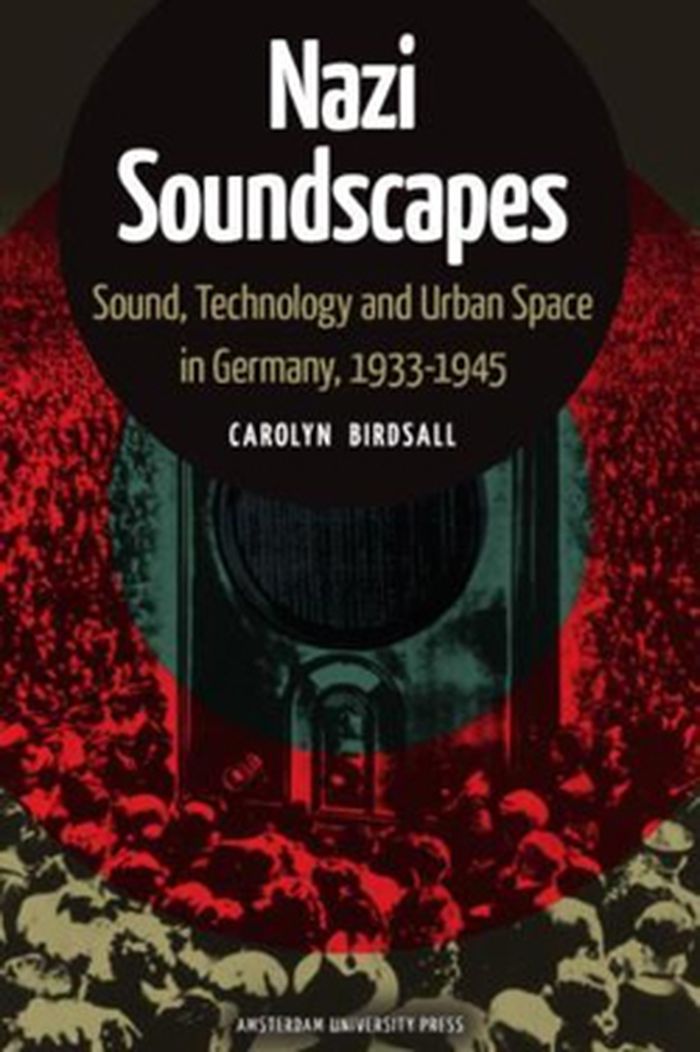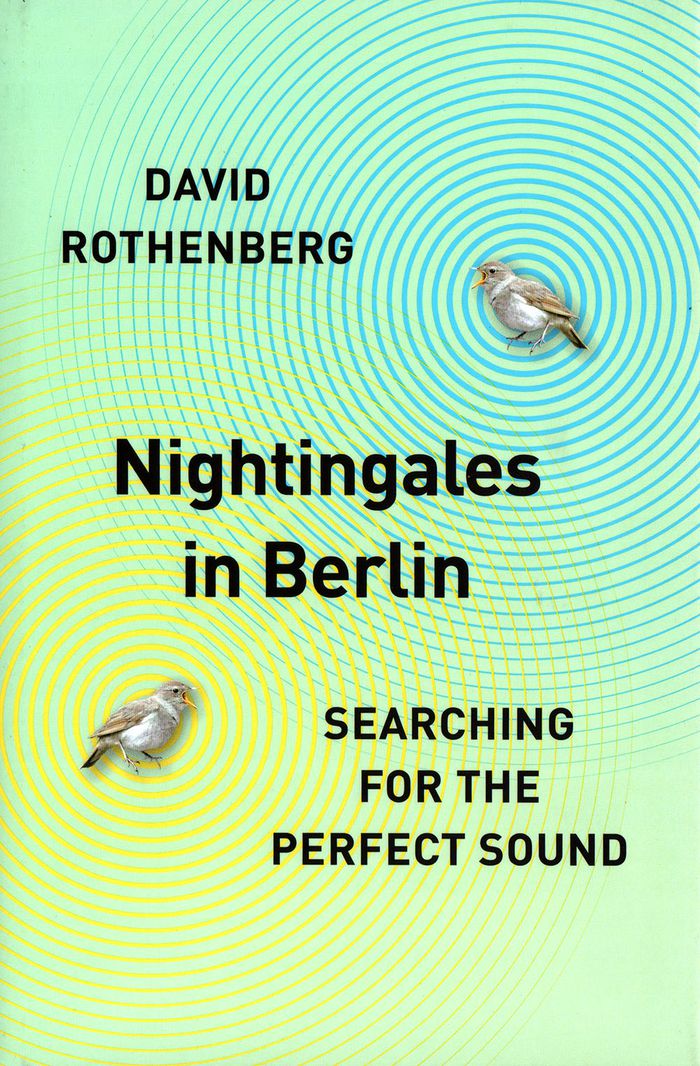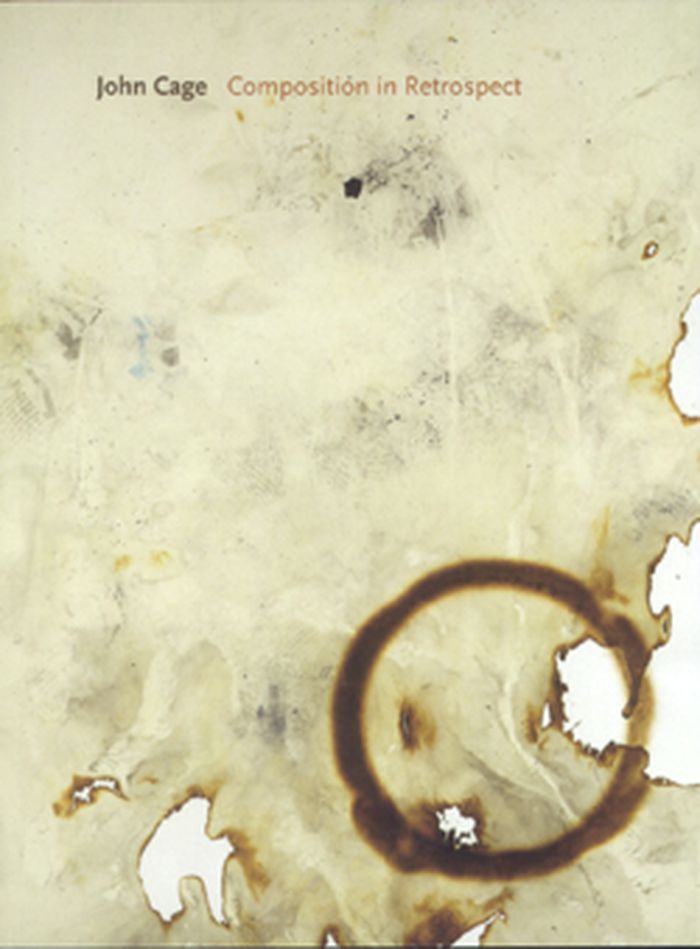$34.95
(available to order)
Summary:
Never before has the everyday soundtrack of urban space been so cacophonous. Since the 1970s, sound researchers have attempted to classify noise, music, and everyday sounds using concepts such as Pierre Shafer's sound object and R. Murray Schafer's soundscape. Recently, the most significant team of soundscape researchers in the world has been concerned with the effects of(...)
Sonic experience : a guide to everyday sounds
Actions:
Price:
$34.95
(available to order)
Summary:
Never before has the everyday soundtrack of urban space been so cacophonous. Since the 1970s, sound researchers have attempted to classify noise, music, and everyday sounds using concepts such as Pierre Shafer's sound object and R. Murray Schafer's soundscape. Recently, the most significant team of soundscape researchers in the world has been concerned with the effects of sounds on listeners. In a multidisciplinary work spanning musicology, electro-acoustic composition, architecture, urban studies, communication, phenomenology, social theory, physics, and psychology, Jean-François Augoyard, Henry Torgue, and their associates at the Centre for Research on Sonic Space and the Urban Environment (CRESSON) in Grenoble, France, provide an alphabetical sourcebook of eighty sonic/auditory effects. Their accounts of sonic effects such as echo, anticipation, vibrato, and wha-wha integrate information about the objective physical spaces in which sounds occur with cultural contexts and individual auditory experience. "Sonic experience" attempts to rehabilitate general acoustic awareness, combining accessible definitions and literary examples with more in-depth technical information for specialists.
Acoustics
$64.95
(available to order)
Summary:
The museum is constantly a target for criticism, whether it comes from artists, thinkers, curators, or even the public. From the avant-gardes of the twentieth century up until our contemporary era, the museum s suspect position has generated countless gestures, iconoclastic actions, scathing attacks, utopias, and alternative exhibition spaces. For the first time, this(...)
The anti-museum - an anthology
Actions:
Price:
$64.95
(available to order)
Summary:
The museum is constantly a target for criticism, whether it comes from artists, thinkers, curators, or even the public. From the avant-gardes of the twentieth century up until our contemporary era, the museum s suspect position has generated countless gestures, iconoclastic actions, scathing attacks, utopias, and alternative exhibition spaces. For the first time, this anthology is devoted to the anti-museum, through anti-art, the anti-artist, anti-exhibition, as well as anti-architecture, anti-philosophy, anti-religion, anti-cinema and anti-music. This notion - unpatented but regularly reappropriated - traces the erratic, fractured, and sometimes paradoxical counter-history of the contestation of artistic institutions. From the first anti-exhibition to the first catalog retracing the history of "Closed Exhibitions" from Dada to Noise music, from "Everything is Art" to NO!art, the Japanese avant-gardes to Lettrist cinema, and not forgetting such major protest figures as Gustav Metzger, Henry Flynt, Graciela Carnevale, and Lydia Lunch, "The anti-museum" sketches a polyphonic panorama where negation is accompanied by a powerful breath of life.
Museology
$54.95
(available to order)
Summary:
Following the formation of the German National Socialist Party in the 1920s, various forms of sound (popular music, voice, noise and silence) and media technology (radio and loudspeaker systems) were configured as useful to the party's political programme. Focusing on the urban "soundscape" of Düsseldorf, the author makes a persuasive case for investigating such sound(...)
Nazi soundscapes : sound, technology and urban space in Germany, 1933-1945
Actions:
Price:
$54.95
(available to order)
Summary:
Following the formation of the German National Socialist Party in the 1920s, various forms of sound (popular music, voice, noise and silence) and media technology (radio and loudspeaker systems) were configured as useful to the party's political programme. Focusing on the urban "soundscape" of Düsseldorf, the author makes a persuasive case for investigating such sound events and technological devices in their specific contexts of production and reception. Nazi Soundscapes identifies strategies for controlling space and reworking identity patterns, but also the ongoing difficulties in manipulating mediated sounds and the spaces of listening reception, whether in the home, workplace, the cinema, public rituals or with wartime siren systems. The study revises visualist notions of social control, and reveals the disciplinary functions of listening (as eavesdropping) as well as the sonic dimensions to exclusion and violence during Nazism. An essential title for everyone interested in the links between German political culture, audiovisual media and urban history,Nazi Soundscapes provides a fascinating analysis of the cultural significance of sound between the 1920s and early 1940s.
Architectural Theory
books
$19.99
(available to order)
Summary:
Tomi Ungerer, illustrator of Jeff Brown's original Flat Stanley and winner of the prestigious 1998 Hans Christian Andersen Illustrator Award, paints the man in the moon as a benevolent, soft-bodied man who curls up in "his shimmering seat in space." Most evenings, he looks over longingly at the happy, dancing earth people, until one night when he can't resist catching the(...)
Moon man
Actions:
Price:
$19.99
(available to order)
Summary:
Tomi Ungerer, illustrator of Jeff Brown's original Flat Stanley and winner of the prestigious 1998 Hans Christian Andersen Illustrator Award, paints the man in the moon as a benevolent, soft-bodied man who curls up in "his shimmering seat in space." Most evenings, he looks over longingly at the happy, dancing earth people, until one night when he can't resist catching the fiery tail of a comet and hitching a ride to Earth. Ungerer, ever satirical, reports the resulting frenzy of authorities upon hearing the crash landing: "The noise brought hundreds of people from a nearby town. Soldiers sped to defend the earth. Firemen hastened to quench the flaming light. The ice cream man hurried to set up his stand for the spectators." Of course, when the crowd discovers the unidentified fallen object, "statesmen, scientists, and generals panicked." Moon Man is thrown in jail, facing criminal investigation! How will he ever return to his lunar dwelling? Kids will love this quirky "there's no place like home" tale, and Ungerer's gentle, funny mocking of "important people" won't be lost on anyone. (Ages 4 to 8)
books
January 2008
$58.50
(available to order)
Summary:
Overcrowding, noise and air pollution, long commutes and lack of daylight can take a huge toll on the mental well-being of city-dwellers. With mental healthcare services under increasing pressure, could a better approach to urban design and planning provide a solution? The restrictions faced by city residents around the world during the COVID-19 pandemic has brought home(...)
Restorative cities: urban design for mental health and wellbeing
Actions:
Price:
$58.50
(available to order)
Summary:
Overcrowding, noise and air pollution, long commutes and lack of daylight can take a huge toll on the mental well-being of city-dwellers. With mental healthcare services under increasing pressure, could a better approach to urban design and planning provide a solution? The restrictions faced by city residents around the world during the COVID-19 pandemic has brought home just how much urban design can affect our mental health – and created an imperative to seize this opportunity. ''Restorative cities'' explores a new way of designing cities, one which places mental health and wellness at the forefront. Establishing a blueprint for urban design for mental health, it examines a range of strategies – from sensory architecture to place-making for creativity and community – and brings a genuinely evidence-based approach that will appeal to designers and planners, health practitioners and researchers alike - and provide compelling insights for anyone who cares about how our surroundings affect us. Written by a psychiatrist and public health specialist, and an environmental psychologist with extensive experience of architectural practice, this much-needed work will prompt debate and inspire built environment students and professionals to think more about the positive potential of their designs for mental well-being.
Humans and cities
$38.50
(available to order)
Summary:
A celebrated figure in myth, song, and story, the nightingale has captivated the imagination for millennia, its complex song evoking a prism of human emotions,-from melancholy to joy, from the fear of death to the immortality of art. As philosopher and musician David Rothenberg shows in this searching and personal new book, the nightingale's song is so peculiar in part(...)
Nightingales in Berlin: searching for the perfect sound
Actions:
Price:
$38.50
(available to order)
Summary:
A celebrated figure in myth, song, and story, the nightingale has captivated the imagination for millennia, its complex song evoking a prism of human emotions,-from melancholy to joy, from the fear of death to the immortality of art. As philosopher and musician David Rothenberg shows in this searching and personal new book, the nightingale's song is so peculiar in part because it reflects our own cacophony back at us. As vocal learners, nightingales acquire their music through the world around them, singing amidst the sounds of humanity in all its contradictions of noise and beauty, hard machinery and soft melody. Rather than try to capture a sound not made for us to understand, Rothenberg seeks these musical creatures out, clarinet in tow, and makes a new sound with them. He takes us to the urban landscape of Berlin—longtime home to nightingale colonies where the birds sing ever louder in order to be heard—and invites us to listen in on their remarkable collaboration as birds and instruments riff off of each other's sounds. Through dialogue, travel records, sonograms, tours of Berlin's city parks, and musings on the place animal music occupies in our collective imagination, Rothenberg takes us on a quest for a new sonic alchemy, a music impossible for any one species to make alone.
Landscape Theory
$17.00
(available to order)
Summary:
Written in his characteristic "mesostics" (linked lines of prose poetry), Composition in Retrospect is a statement of methodology in which composer John Cage examines the central issues of his work: Indeterminacy, nonunderstanding, inconsistency, imitation, variable structure, contingency. Finished only shortly before his death in 1992, Composition in Retrospect completes(...)
John Cage composition in retrospect
Actions:
Price:
$17.00
(available to order)
Summary:
Written in his characteristic "mesostics" (linked lines of prose poetry), Composition in Retrospect is a statement of methodology in which composer John Cage examines the central issues of his work: Indeterminacy, nonunderstanding, inconsistency, imitation, variable structure, contingency. Finished only shortly before his death in 1992, Composition in Retrospect completes the documentation of Cage's thought that began with his classic book Silence (1961), but it is an introduction and invitation to his work as much as a summary or conclusion. Also included in this volume (at Cage's request) is "Themes and Variations," a piece written in 1982 about friends and heroes such as Jasper Johns, Buckminster Fuller, Marcel Duchamp and Erik Satie. Together these pieces form a book that is both a testament to the artists Cage admired and a clear statement of his own ars poetica. John Cage (1912-1992) was an American composer, writer, artist and mycologist. Having studied with Arnold Schonberg (who proclaimed him "not a composer, but an inventor-of genius") and Henry Cowell in the 30s, Cage went on to devise landmark compositions for percussion and prepared piano before making his hugely influential work 4'33" (1952). Later works privileged composition by chance procedure--"imitating Nature in the manner of her operation"--and the use of ambient noise, electronics and tape manipulation. Cage's influence can be seen in the works of countless composers (especially the New York School "group" of Morton Feldman, Christian Wolff and Earle Brown), artists (such as those affiliated with Fluxus) and writers.
Contemporary Art Monographs
